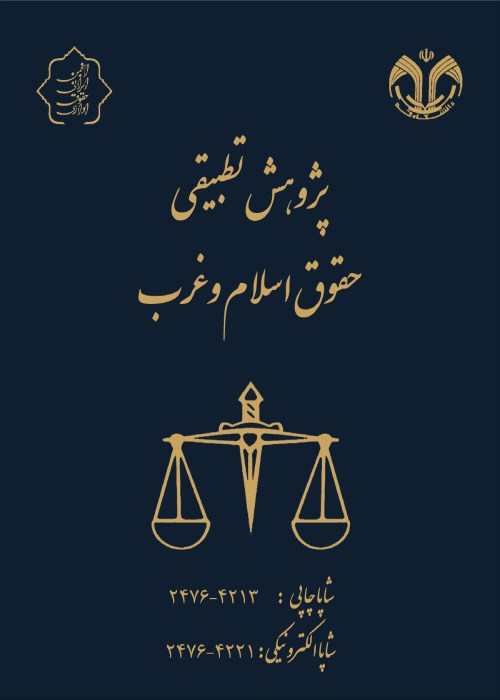A Comparative Study of Child Custody After Divorce in Iranian, English, and Canadian Laws
Child custody is a significant issue faced by families after divorce in all legal systems. In Iranian law, custody refers to the keeping, care, and regulation of a child's relationships with others, while in Canadian and English law, it encompasses all the rights, duties, powers, responsibilities, and authorities that parents have concerning their child and their property. The crucial question to be addressed is how divorce affects child custody according to the legal systems of Iran, England, and Canada. It appears that while divorce itself does not have a direct impact on the priority of one parent over the other in terms of child custody in Iranian law, the actual determination of custody between the father and mother becomes evident after divorce due to their pre-divorce cohabitation. In Canadian and English law, explicit gender priority in post-divorce custody has largely subsided since the 1970s, with custody laws focusing on an independent assessment of the child's best interests and welfare, thus divorce does not affect the priority of one parent over the other regarding child custody. The research methodology employed in this study is descriptive-analytical and documentary, utilizing a library-based approach. After analyzing the content, the following conclusions were drawn: firstly, it should be noted that Canadian law is similar to English law in most related aspects. Secondly, custody in Iran only encompasses child custody, while in common law, it also includes guardianship and wardship. In common law, both parents can jointly seek custody, and there is no priority between them. The court decides which parent should be responsible for custody based on the child's best interests and welfare. Additionally, the mother's remarriage does not affect custody arrangements. However, in Iranian law, although custody remains with the mother until the child reaches the age of 7, guardianship remains with the father. Anything that endangers the child, such as insanity, leads to the deprivation of custody. Iranian legislation considers the mother's remarriage as a ground for depriving her of custody, but it does not consider the father's remarriage as an effective ground for deprivation. Nevertheless, according to Article 41 of the Law on Family Protection enacted in 2012, the court has the authority to modify or extend custody duration and the custodial parent based on the child's best interests.
- حق عضویت دریافتی صرف حمایت از نشریات عضو و نگهداری، تکمیل و توسعه مگیران میشود.
- پرداخت حق اشتراک و دانلود مقالات اجازه بازنشر آن در سایر رسانههای چاپی و دیجیتال را به کاربر نمیدهد.


